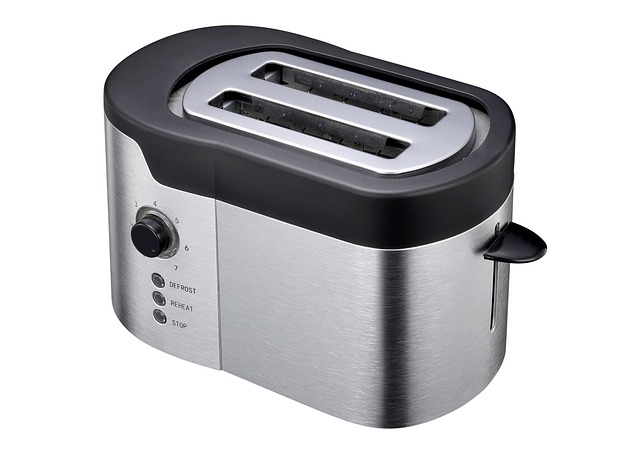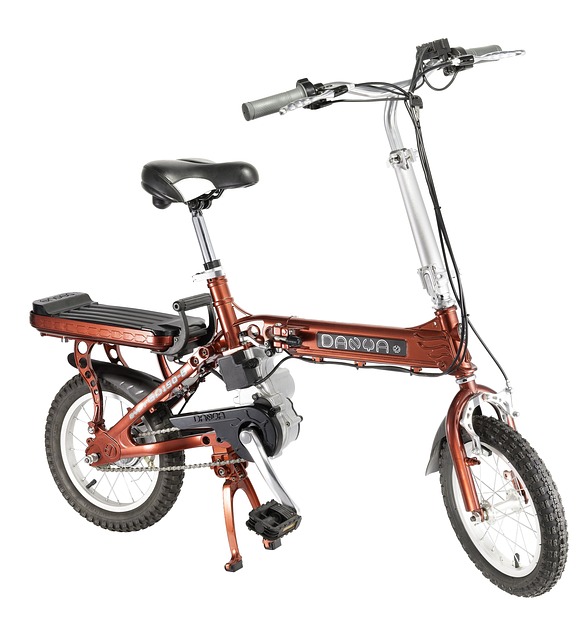Opting for Energy Star-rated major appliances can lead to substantial reductions in household utility expenses due to their high energy efficiency. These appliances—including refrigerators, washing machines, dishwashers, and dryers—consume significantly less electricity and water than conventional models. Their advanced technologies, such as superior insulation in refrigerators, precise water sensors in washers and dishwashers, and moisture sensors in dryers, enhance performance while conserving resources. These energy-saving attributes lead to long-term savings by cutting down on electricity and water consumption, resulting in lower utility bills and a reduced carbon footprint. Homeowners considering an upgrade to their major appliances are encouraged to look for models with high Energy Star ratings, which indicate adherence to strict energy efficiency benchmarks set by the U.S. Environmental Protection Agency. By choosing these energy-efficient options, consumers can enjoy both economic and environmental advantages, contributing to sustainable living while saving money in the long run.
Homeowners seeking to reduce their utility bills without compromising on comfort and convenience can benefit greatly from incorporating energy-efficient major appliances into their homes. This article explores how these modern marvels not only contribute to a more sustainable environment but also offer significant savings on electricity and water consumption. We’ll delve into assessing your current appliance efficiency, exploring potential savings, and highlighting top energy-efficient options including refrigerators, washing machines, dishwashers, ovens/cooktops, and air conditioners. Additionally, we’ll guide you through the process of selecting Energy Star rated appliances and inform you about available incentives to make your investment both cost-effective and eco-friendly.
- Understanding the Impact of Energy-Efficient Major Appliances on Utility Bills
- Assessing Your Current Appliance Efficiency and Potential Savings
- Top Energy-Efficient Major Appliance Options for Homeowners
- – Refrigerators: The Unending Guardians of Freshness
- – Washing Machines: Spinning Towards Sustainability
Understanding the Impact of Energy-Efficient Major Appliances on Utility Bills

Integrating energy-efficient major appliances into your home can significantly influence your utility bills. These appliances, often marked with an Energy Star label, are designed to consume less electricity and water than their traditional counterparts, leading to notable savings over time. By opting for refrigerators, washing machines, dishwashers, and other appliances that meet high-efficiency standards, homeowners can reduce their energy consumption substantially. The initial investment in these appliances is offset by the reduced costs of operation, as they use advanced technologies to perform tasks more efficiently. For instance, energy-efficient refrigerators with improved insulation and efficient cooling systems require less power to maintain optimal temperatures, thereby lowering electricity usage and utility expenses. Similarly, high-efficiency washers and dishwashers conserve water by using sensors to adjust the amount needed for each load, which can result in savings on water bills. The cumulative effect of these energy-saving features translates into tangible reductions in monthly utility costs, making the switch to energy-efficient major appliances a cost-effective and environmentally responsible choice for consumers.
Assessing Your Current Appliance Efficiency and Potential Savings

When considering a strategy to reduce utility bills through energy efficiency, a prudent first step is to assess the current energy consumption of your major appliances. Homeowners can begin by inventorying their appliances and evaluating their energy usage ratings. These ratings are typically expressed in terms of annual energy consumption and can be found on the appliance’s energy label or user manual. By understanding the efficiency of your existing appliances, you can identify which ones may be underperforming and thus, which models could offer significant potential savings in future replacements. For instance, if your refrigerator is a decade old, it might be operating at only a fraction of today’s energy-efficient standards. Replacing it with an Energy Star certified model, specifically designed for optimal performance and efficiency, can lead to substantial reductions in electricity use. Similarly, washing machines with high-efficiency (HE) labels or dishwashers with advanced water conservation technologies can slash water and energy expenses. By evaluating the performance of your current major appliances and considering upgrades where appropriate, you can pave the way for a more cost-effective and environmentally friendly home environment. Keep in mind that while the initial investment for energy-efficient models may be higher, the long-term savings on utility bills often offset this cost, making the transition to energy efficiency both economically sound and beneficial for the planet.
Top Energy-Efficient Major Appliance Options for Homeowners

Homeowners looking to reduce their utility bills and minimize their environmental footprint have a variety of energy-efficient major appliance options at their disposal. High-efficiency washing machines, for example, utilize less water and energy per load than their conventional counterparts, saving homeowners money on their water and electricity bills. Similarly, advanced refrigerators with improved insulation and efficient cooling systems can significantly cut down on energy consumption while maintaining optimal food storage conditions. Energy Star-certified dishwashers are designed to save water without compromising on cleaning performance, making them a smart choice for those aiming to conserve resources. Additionally, modern dryers equipped with sensors to detect clothes moisture levels can reduce drying time and energy use, further contributing to cost savings. When considering upgrades to major appliances, opting for models with the ENERGY STAR label ensures that they meet strict energy efficiency guidelines set by the U.S. Environmental Protection Agency, offering homeowners a reliable indicator of performance and efficiency. These innovative appliances not only help in managing energy consumption but also contribute to a more sustainable home environment.
– Refrigerators: The Unending Guardians of Freshness

In the pursuit of sustainability and cost savings, energy-efficient refrigerators have become a cornerstone in modern households. As major appliances, these guardians of freshness play a critical role in preserving our food while also protecting our wallets from soaring utility bills. The latest models are equipped with advanced technologies such as improved insulation, energy star ratings, and smart cooling systems that optimize their performance. By consuming less electricity, they not only contribute to a reduced carbon footprint but also ensure that your groceries stay fresher for longer periods. When shopping for a new refrigerator, consumers are encouraged to look for models with a higher Energy Efficiency Rating (EER), as these will offer the best balance between cost and environmental impact. By making an informed choice, households can significantly cut down on energy costs, making the switch to energy-efficient refrigerators a smart investment for both the home and the planet.
The evolution of refrigerators into more energy-conscious major appliances has been a testament to technological advancements and consumer demand for sustainable living solutions. These modern marvels not only maintain the ideal temperature but also come with additional features like touchscreen interfaces, Wi-Fi connectivity, and adaptive defrost systems that further enhance their efficiency and longevity. Homeowners looking to upgrade their refrigerators should consider models that offer the best combination of energy efficiency, capacity, and innovative features. By integrating these appliances into your home, you’re not just safeguarding your groceries; you’re also taking a proactive step towards reducing your household’s energy consumption and lowering your monthly utility expenses.
– Washing Machines: Spinning Towards Sustainability

In the pursuit of sustainable living, energy-efficient appliances play a pivotal role in reducing utility bills and conserving natural resources. Among major appliances, washing machines have seen significant advancements towards sustainability. Modern washing machines now incorporate high-efficiency technologies that consume less water and electricity without compromising on performance. By utilizing advanced spin cycles, these machines can extract more water from garments, leading to shorter drying times and lower energy consumption. The introduction of sensors that adjust water levels based on the load size further enhances their energy efficiency, ensuring that only the necessary amount of water is used for each cycle. Homeowners looking to make eco-friendly choices in their major appliances can significantly impact their environmental footprint by selecting washing machines with high Energy Star ratings, indicating superior energy performance and savings over time. These innovations in washing machines not only contribute to a greener planet but also offer substantial savings on water and electricity bills, making them an economically sound investment for any household.
The shift towards sustainability in washing machines is part of a broader movement within the major appliance sector, where manufacturers are increasingly focusing on creating products that align with environmental goals. By integrating smart features such as eco-cycles and delay start options, these machines offer users the flexibility to utilize resources more efficiently. Additionally, the push for greater insulation in drums and improved sealants has led to significant reductions in energy loss during operation. As a result, consumers are presented with a variety of washing machine models that cater to different needs while promoting sustainable practices. The cumulative effect of these improvements is a marked decrease in utility costs for consumers and a collective step towards a more sustainable future.
In conclusion, integrating energy-efficient major appliances into your home is a prudent step towards reducing utility expenses and minimizing environmental impact. By understanding how these appliances influence your energy consumption and subsequent bills, homeowners can make informed decisions that lead to significant savings over time. The options available, such as advanced refrigerators and eco-friendly washing machines, represent a commendable evolution in household appliance technology, offering both freshness preservation and sustainability. Embracing these innovations not only contributes to cost-effectiveness but also aligns with the broader goal of energy conservation. For those looking to optimize their home’s energy performance without compromising on functionality or efficiency, exploring the market for high-efficiency major appliances is a wise choice.
